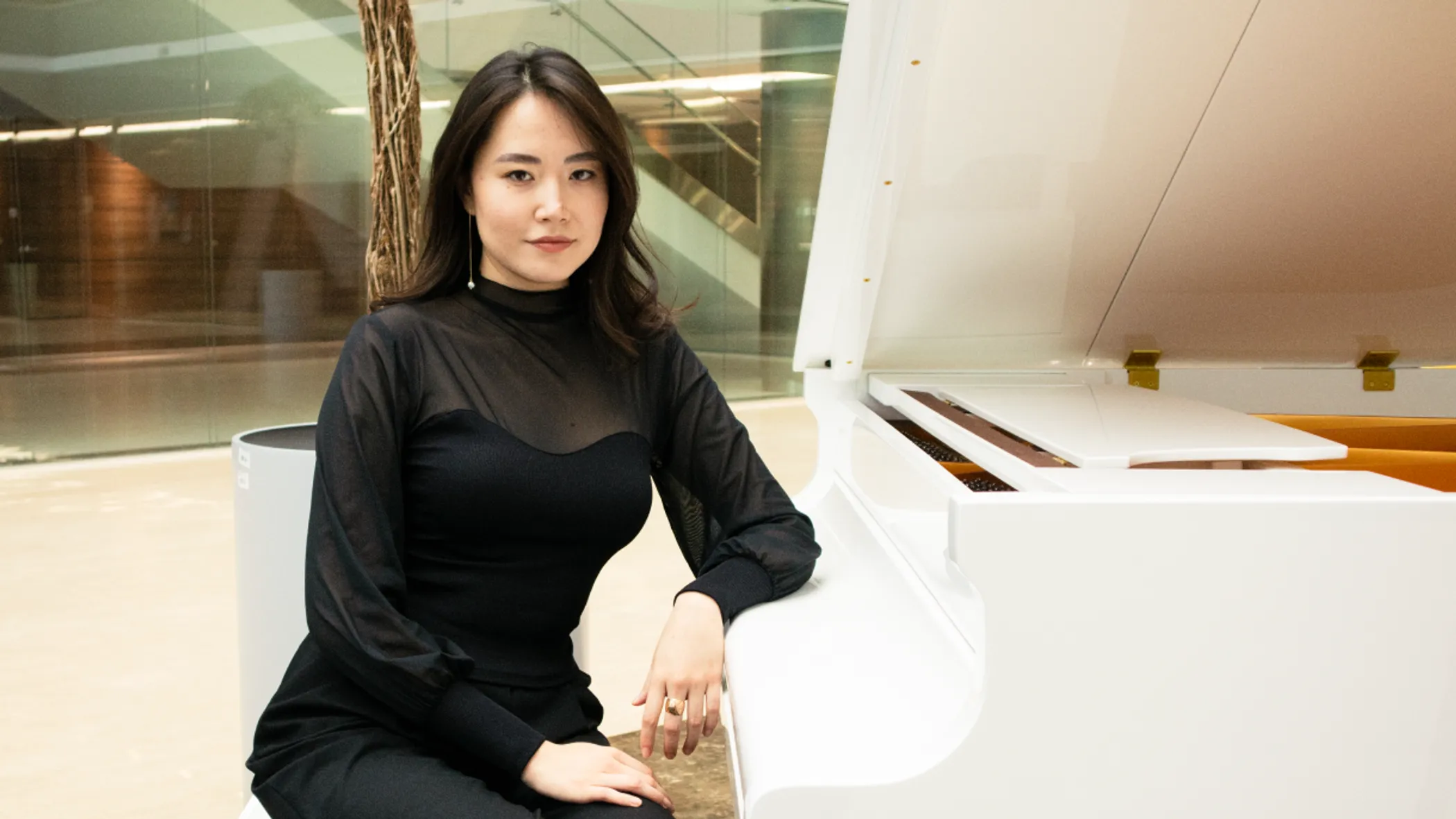During the fall, Astana takes on a melancholic auburn look, setting the atmosphere for a walk along the embankment — a perfect stage in need of a proper soundtrack. As you put on your headphones, the first soundscape course by almost unnoticed. Not a surprise, the city's chatter surrounds you, after all. You just notice someone walking their dog, but here hits the second wave. Your attention shifts, and you immerse in the deeply resonating piano passages. If this is your cup of tea, then you are welcome to explore Gulmira Issimbayeva’s works, where soundscapes are crafted from personal experiences.
Gulmira is a minimalist composer whose albums 'Relief' and 'Dem' have the power to whisk you away. But there's more—she's also an economist, heading the consulting services department at the Applied Economics Research Centre in Astana, where she applies her expertise to various projects.
QazMonitor approached Gulmira to discuss her recent performance at the Dior fragrance launch event and her unique journey of balancing two distinct professional paths throughout her life, delving into the deep wellsprings of her inspiration in music and economics.
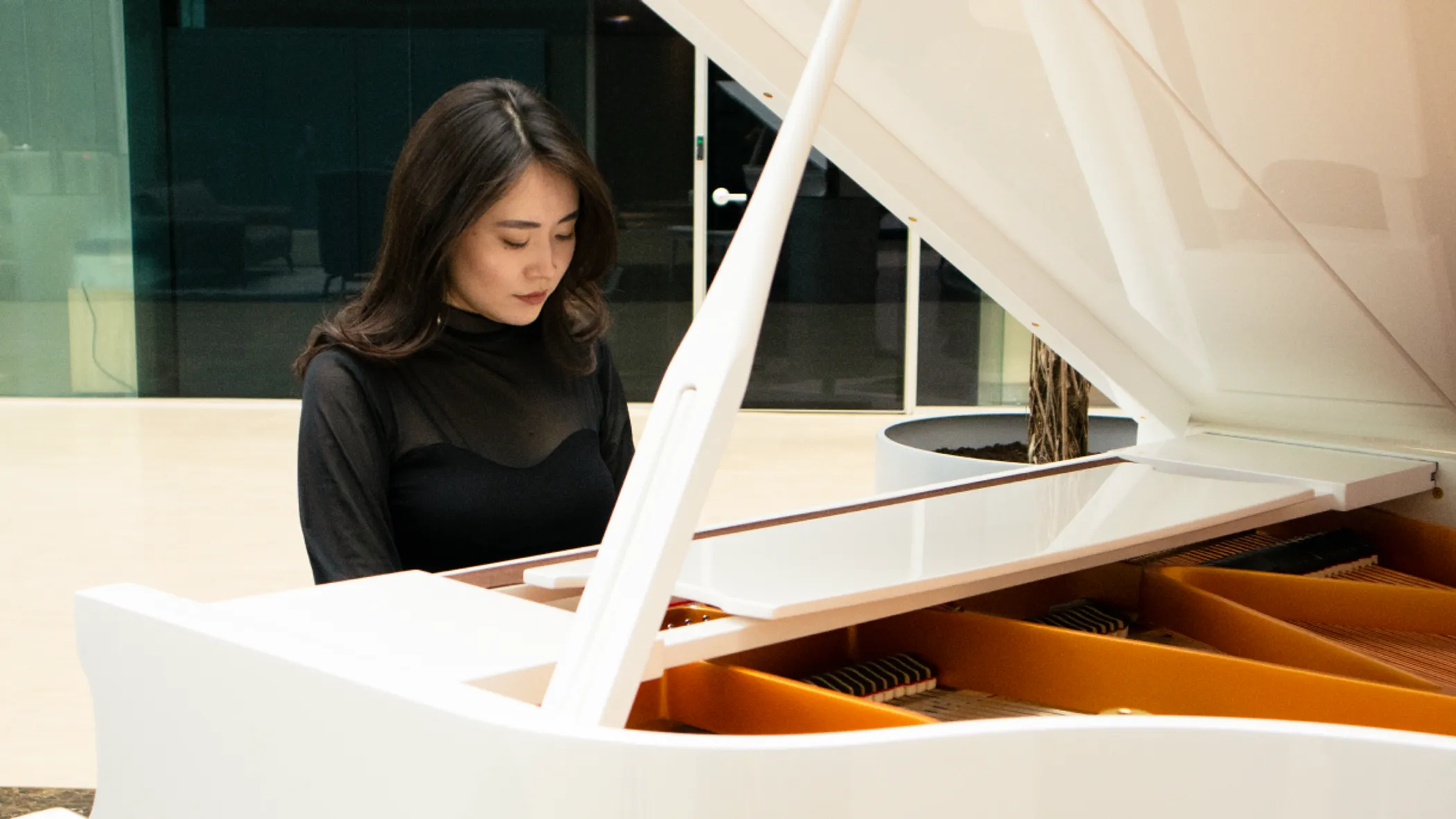
I would like to congratulate you on your recent performance at the J'adore L'Or launch party. What was it like to perform at such an event?
It was a surprise when they contacted me. It’s not often that I get the chance to perform at such events, especially on such a large scale, so it was thrilling for me to play for a whole hour.
When I write music, I need to understand its message. Understand the storyline behind each piece. And in ‘Dem’, I wanted to convey, more, I guess, how a woman goes through a certain stage. The stage of letting someone go. So, as I was formulating ideas, the word 'femininity' lingered in my mind, along with deep emotions – feelings of despair at times, and moments of solitude in others.
For the Dior presentation, the organizers, I think, felt this in my music and thought that it would fit well with their event. They recognized that I could convey the message they wanted to express through their fragrance.
How would you describe your music?
Probably as sensual, feminine, emotional. At times, it can be very emotional! (laughs) But I would say that this is more prominent in my early works, and now they are more…not conservative or liberated, but self-contained.
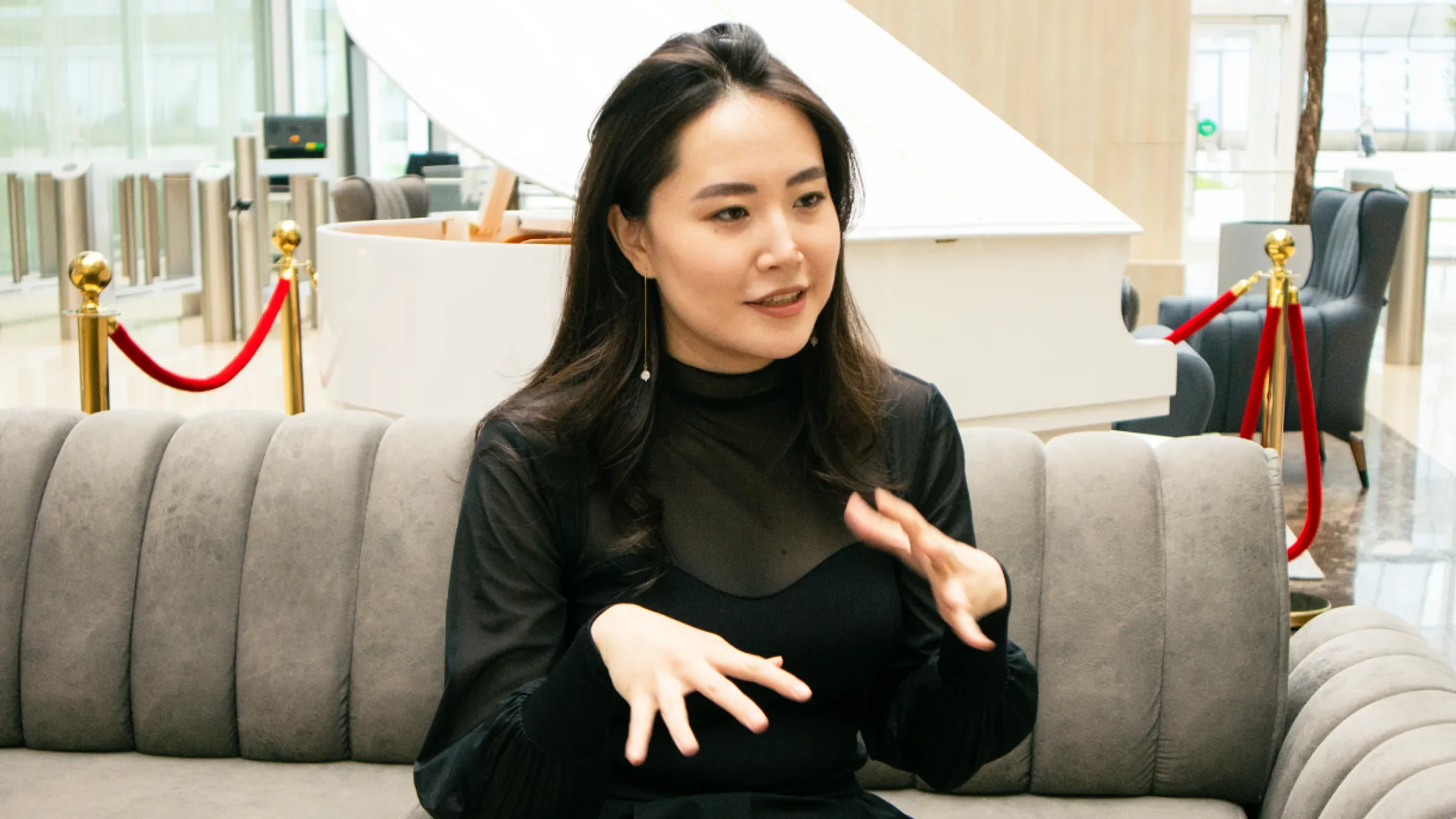
I guess, my music reflects how and what I feel at the moment when I write it, so it has often been like that. It's sensual, it’s emotional, and feminine, as that's something that I would like to convey through music.
If I'm not mistaken, you've been working on 'Dem' for four years. What it was like working on it for such a long period?
I think I was intentionally writing it only for that last year. I already knew what it was going to be called and what it was going to be about. And with some of the compositions I started [way back] in 2016 – I had certain sketches and melodies, and I wanted to finish them, but I couldn't. I think I found a way to finish them all only when I passed that stage.
Without going through it, I probably wouldn't have been able to write 'Dem'. If I hadn't had a clear plot in my head from start to finish, then I wouldn't have been able to finish the album.
'Relief', my first album, is more of a compilation of individual stories, but 'Dem' has a consistency to it, well, at least for me. With each track being a little stage.
'Dem' is not about a moment when you've met someone, and it’s not about the exact moment of letting go of your first love. 'Detachment from Old' is about when you sort of let it go but you don't want to. The second track, 'Nowhere to Escape', is how you still can't escape [the feelings]. And the third one, 'One Timeless Feel', is when you remember it all: all your feelings and sensations. It's about liberation, in a way.
With such intensity on one end, how do you manage two professional paths?
I suppose it has always been that way for me; it's something fundamental – there's study or work, and then there's a music school. It all just keeps going.
I always wanted to experience what it's like to be employed at a company, [and be a part of] the workflow. I've always had a question or task in my mind that I wanted to see and try my hand at.
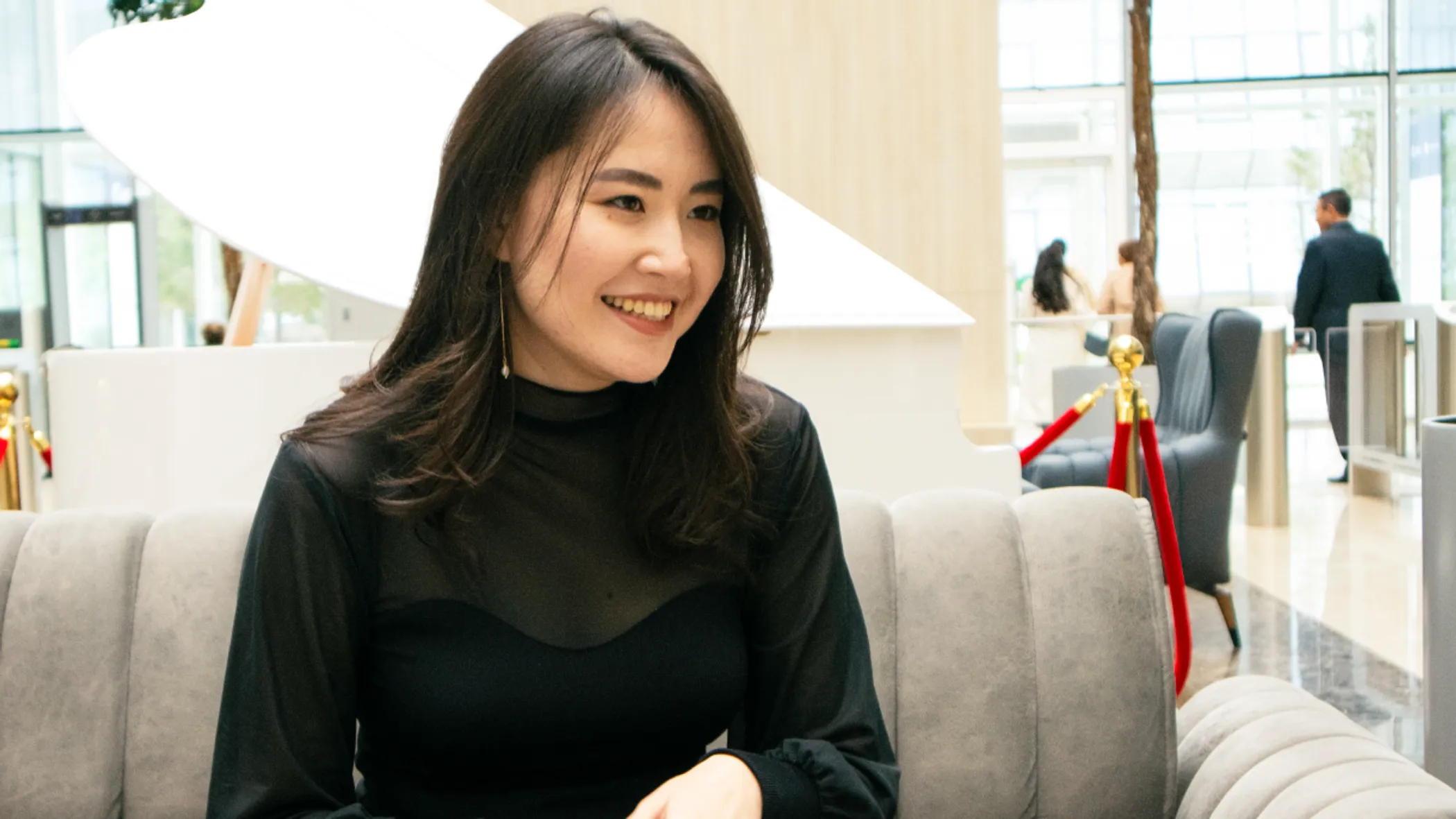
You start meeting various experts in this field, and for me, it's very interesting to work with these people and learn from their professionalism. And there’s also the fact that I get to develop my skills, whether it's in writing, communication, or time management. That's what I've been striving to do and what I continue doing, and then there's also music being ‘a hobby slash something I’d like to do all my life.’ Like a calling.
While we're on the topic, did you want to be a musician growing up?
I wanted to be a singer! (laughs)
One day, I saw a piano being played on a TV. I was about six or seven years old. Perhaps I should even say I was seven because we enrolled in school a little late. My mom noticed that I liked it and said, 'I wanna!'
So, she took me to music school. We originally wanted to enroll me in the vocal class, but at the time, it wasn't open yet, so I started with the piano. I got a C for my entrance exam, which tests your sense of pitch. But after the first term, I managed to play a very challenging piece [for my level] two-handed, and the teacher who gave my entrance exam was very surprised.
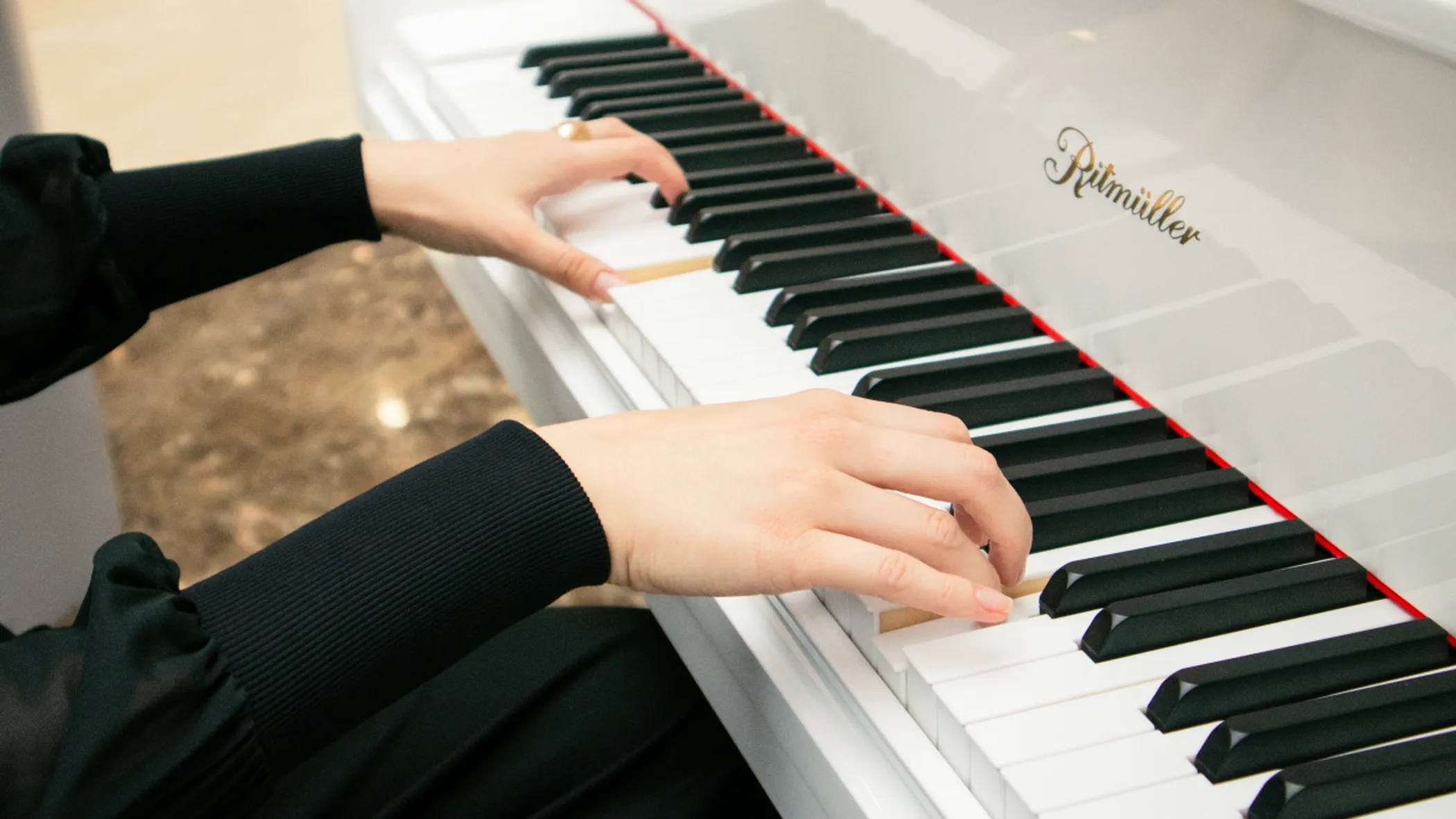
Now, I realize that when I was a child, it was challenging for me to get classical music, and I didn't appreciate it back then (laughs). I disliked learning it, but when I discovered that I could create something of my own... I suppose I enjoy the process of creating, exploring new sounds, and finding personal meaning within compositions.
Have you ever considered fully committing to music, perhaps taking a year or two, for example, to write a movie soundtrack or something similar?
I have had such thoughts. I’d like to compose music for a movie, and I aspire to grow in that direction. I've dabbled in it a bit. I participated in the British Council's Envision Sound project [QM. — in partnership with The Oleksandr Dovzhenko National Centre in Kyiv], where they invited film composers, and I was selected to attend a workshop on film music. I hadn’t had any prior experience, but I was selected, and within a week, I composed music for a short film by a Ukrainian director.
So, if we're talking about the financial part, my main income comes from my job, and right now, I'm balancing these two fields. But If at some point I see that it's feasible to make a living with music, at least on a basic level, then I would consider delving into it.
You can find Gulmira’s music on YouTube, Spotify, Apple Music, and Deezer.
